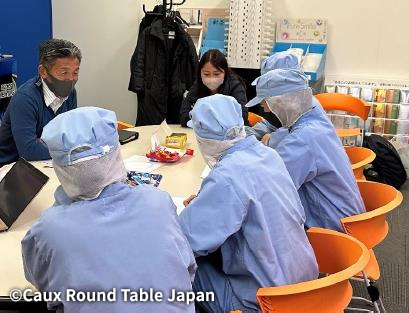In FY2022, we conducted human rights assessments to check human rights and labor practices at consolidated companies and overseas suppliers of wood raw materials among those covered by the Supplier Sustainability Survey. No serious human rights risks were identified, but we requested improvements at sites with organizational problems that could be potential human rights risks (e.g. unclear responsible departments or personnel in charge of human rights-related issues).
In order to ascertain the working environment of foreign workers in Japan, a survey was conducted on the employment situation of foreign employee workers (including technical interns and temporary workers) and compliance with relevant laws and regulations, targeting 92 domestic consolidated companies. No problems were found in terms of compliance with laws and regulations or treatment in 23 companies employing foreign national workers.
Although no serious risks were identified in the human rights assessment, as the Ministry of Economy, Trade and Industry's Guidelines for Respect for Human Rights state that foreigners, women and children, persons with disabilities, indigenous people, etc. are often placed in vulnerable positions, this year's potential human rights risk survey targeted "foreign nationals, including technical interns Workplace employing foreign nationals, including technical trainees", and an interview survey by external experts (Caux Round Table Japan (CRT Japan)) was conducted at Oji Packaging, a Group company.
Foreign technical interns of Oji Packaging Co., Ltd.: 8
The CRT reported that there were no major problems with working hours, wages, health and safety, communication, etc., and confirmed that they had established a good relationship of trust.

On the advice of the CRT, the results of this interview were shared within the Group as best practice examples, and the status of labor practices, etc. was checked with four companies that accept technical interns. The results were generally good, but it was found that there were some establishments where pay slips and signs to prevent accidents in the workplace were written only in Japanese, so points for improvement were shared and the intention to make further improvements were confirmed.
We participated in the Human Rights Education Subcommittee and the Human Rights Due Diligence Subcommittee of the Global Compact Network Japan and exchanged information with experts from other companies and NPOs.